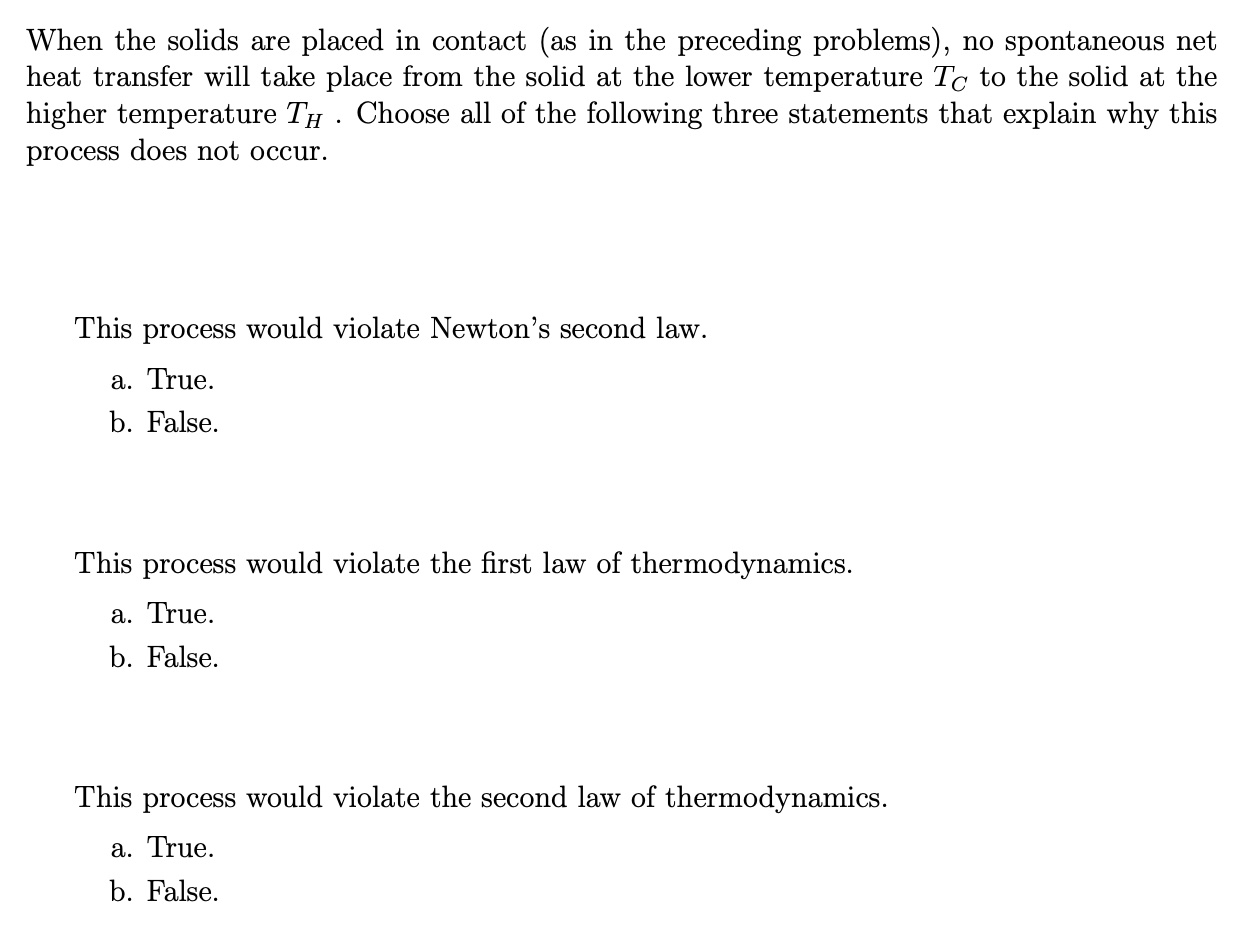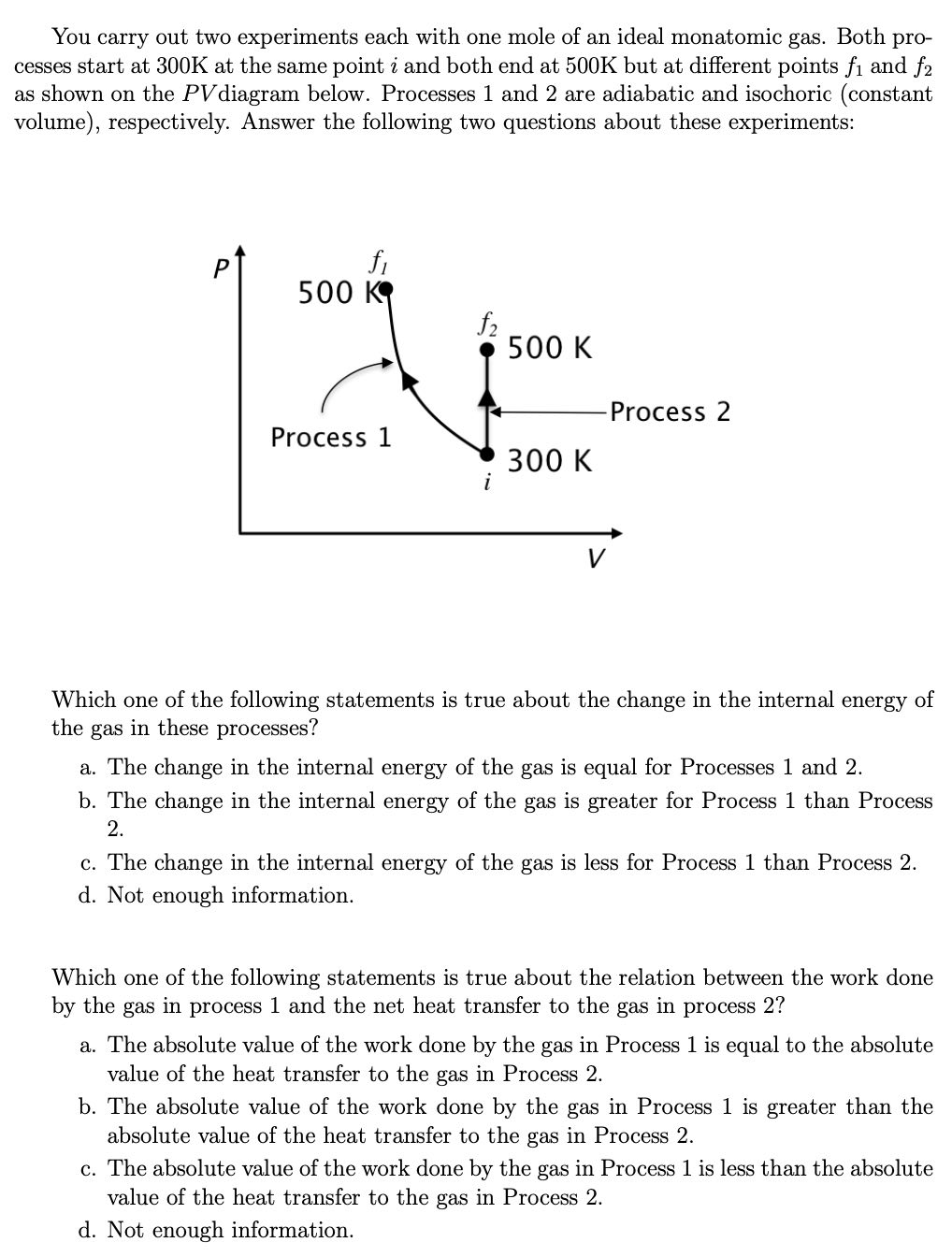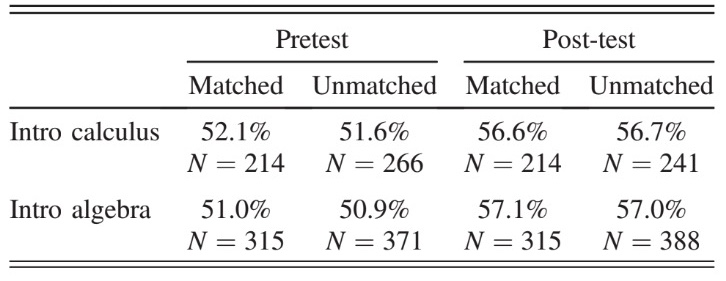Developed by Benjamin Brown and Chandralekha Singh
| Purpose | To measure the effectiveness of traditional and/or research-based techniques of teaching the first and second laws of thermodynamics and thermodynamic processes. |
|---|---|
| Format | Pre/post, Multiple-choice |
| Duration | 50 min |
| Focus | Thermal / Statistical Content knowledge (PV diagrams, reversible processes, irreversible processes, first law of thermodynamics, second law of thermodynamics) |
| Level | Upper-level, Intermediate, Intro college |
Sample questions from the STPFaSL-Long:


more details
This is the second highest level of research validation, corresponding to at least 5 of the validation categories below.
Research Validation Summary
Based on Research Into:
- Student thinking
Studied Using:
- Student interviews
- Expert review
- Appropriate statistical analysis
Research Conducted:
- At multiple institutions
- By multiple research groups
- Peer-reviewed publication
The multiple-choice questions on the STPFaSL-Long were developed by consulting with instructors of introductory courses about topics and content goals, as well as materials for these courses, and completing literature review of student difficulties with relevant topics. A preliminary distribution of questions from various topics was developed in consultation with instructors. Free-response versions of the questions were then given to students, and the responses used to create the multiple-choice answers. Students interviews were conducted and expert input incorporated at various points in the development process. Appropriate statistical analyses of difficulty, discrimination and reliability were conducted and reasonable results found, This version of the survey instrument is a longer version of the original shorter version STPFaSL-Short developed and validated earlier. The 19 contexts including the exact wording of all of the problem situations posed in the two versions of the survey instrument are identical and the difference between the long and short versions of the instrument is only in the multiple-choice options. In particular, in the longer version of the survey instrument, there are no alternative conceptions explicitly embedded in the four multiple-choice options students choose from and the questions asked in a given context in one item of the shorter survey instrument were split into several items focusing, e.g., on different thermodynamic variables. After the development and validation of the longer version of the survey instrument, the final version was administered in 12 different in-person classes (four different institutions) in which students answered the questions in-class on paper scantron forms with the instructor as the proctor and 12 different in-person classes (five different institutions) in which students answered the questions online on Qualtrics within a two-hour period. Some graduate students were administered both versions of the survey and the Pearson correlation coefficient between the two versions was 0.88, which is relatively high suggesting that both versions are measuring very similar things. Thus, the instructors can administer the version of the survey they prefer.
References
- B. Brown, Developing and Assessing Research-Based Tools for Teaching Quantum Mechanics and Thermodynamics, University of Pittsburgh, 2015.
- B. Brown and C. Singh, Development and validation of a conceptual survey instrument to evaluate students’ understanding of thermodynamics, Phys. Rev. Phys. Educ. Res. 17 (1), 010104 (2021).
- M. Brundage, Investigating and Improving Student Understanding of Mechanics, Electricity and Magnetism, Quantum Mechanics, and Thermodynamics using Conceptual Surveys, Ph.D. Dissertation, University of Pittsburgh, 2024.
- M. Brundage, D. Meltzer, and C. Singh, Investigating context dependence of introductory and advanced student responses to introductory thermodynamics conceptual problems, presented at the Physics Education Research Conference 2023, Sacramento, CA, 2023.
- M. Brundage and C. Singh, Development and validation of a conceptual multiple-choice survey instrument to assess student understanding of introductory thermodynamics, Phys. Rev. Phys. Educ. Res. 19 (2), 020112 (2023).
- D. Meltzer, M. Brundage, and C. Singh, Introductory and advanced students’ difficulties with thermodynamic work, presented at the Physics Education Research Conference 2024, Boston, MA, 2024.
We don't have any translations of this assessment yet.
If you know of a translation that we don't have yet, or if you would like to translate this assessment, please contact us!
| Typical Results |
|---|
Typical results on the STPFaSL-Long from Brundage and Singh 2023:
|
The STPFASL-long contains the same 19 question contexts as the STPFASL-short, but the STPFASL-long splits most questions into several sub-questions where each asks about only one thing, e.g., one thermodynamic variable.
Variation
|
|
Survey of Thermodynamic Processes and First and Second Laws (short)Content knowledge Thermal / Statistical (first law of thermodynamics, second law of thermodynamics, PV diagrams, reversible processes, irreversible processes)Intro college Pre/post, Multiple-choice |




